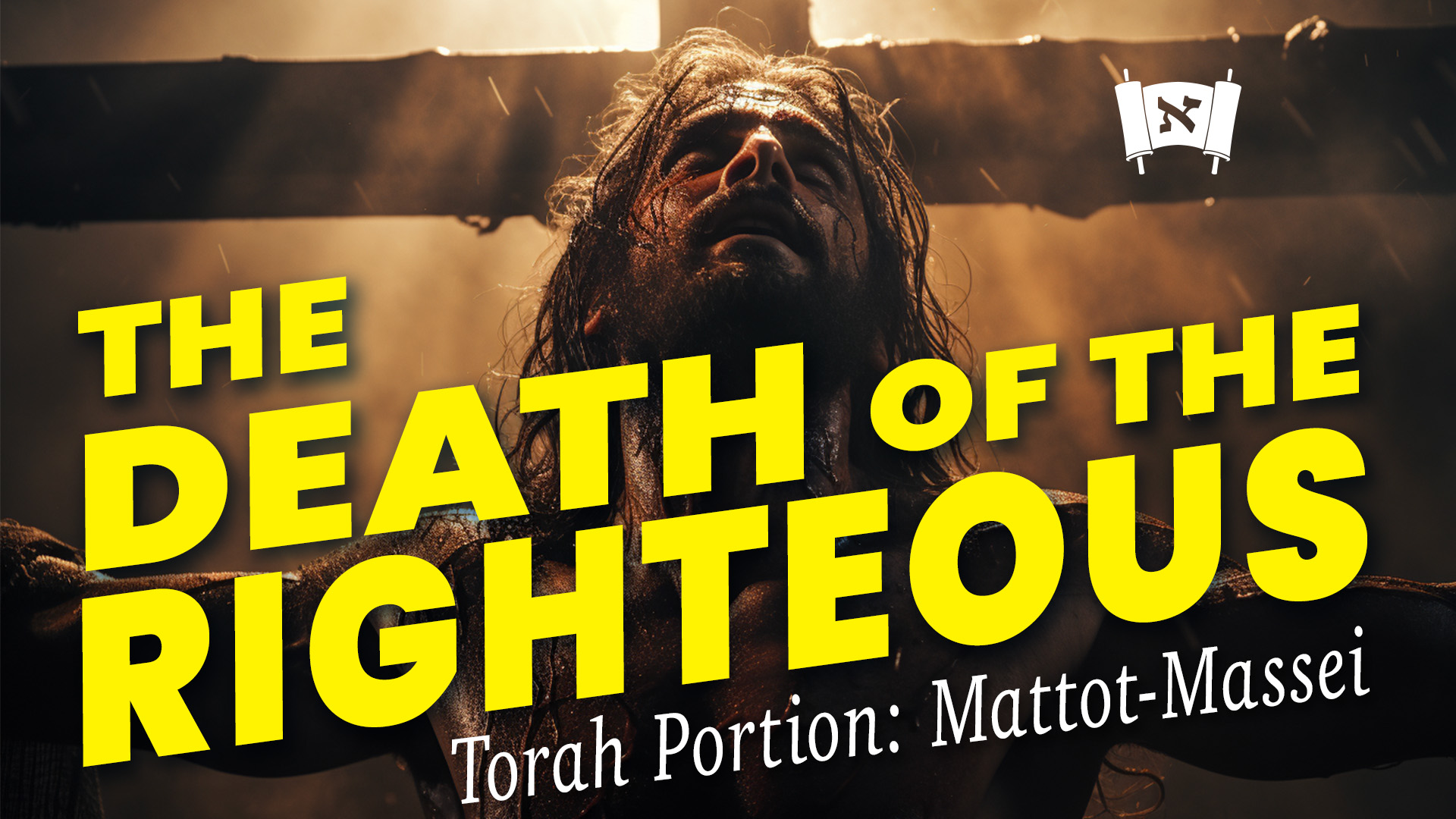The Death of the Righteous
Series:

Mattot-Massei (Numbers 33:1-36:13)
The details of the cities of refuge are spread out over three sections of the Torah: Exodus 12, Numbers 35, and Deuteronomy 19. In our current Torah portion, we learn that a manslayer must undergo investigation in order to determine whether or not he qualifies for protection within a city of refuge. He is to appear before a court in order to determine his qualification. If he is not at fault, then he is free and does not have to enter the city of refuge. If he is guilty of ill-intent, then he is to be executed. However, if he is basically guilty of some type of negligent homicide, then he is to flee to the city of refuge where he will be protected from the go’el (גאל), the redeemer of the one slain (Numbers 35:9–12).
Additionally, we learn the length of time he must remain in the city of refuge if this is his fate. Curiously, it is not a fixed amount of time, but one based on an unknown variable. The manslayer is to remain in the city of refuge until something happens to end his confinement:
And the congregation shall rescue the manslayer from the hand of the avenger of blood, and the congregation shall restore him to his city of refuge to which he had fled, and he shall live in it until the death of the high priest who was anointed with the holy oil … For he must remain in his city of refuge until the death of the high priest, but after the death of the high priest the manslayer may return to the land of his possession. (Numbers 35:25, 28)
Unlike any other sin or trespass enumerated within the Torah, manslaughter is unique in that an obscure penalty is associated with it: confinement to a city of refuge for an unknown time period. Why was this penalty assigned? What relationship does a manslayer have with the high priest that the fate of the one is bound to the other? Rashi proposes that they are both tied to the presence of the Shechinah in Israel. He says that the merit of the high priest caused the Shechinah, the Divine Presence, to dwell among Israel, while the manslayer caused the Shechinah to depart from Israel. And since these two work in opposition to one another, the manslayer was to remain isolated in the city of refuge away from the high priest.
Does this connect in any way to Yeshua’s death? Traditionally, the death of Yeshua has been seen as a fulfillment of the Torah’s sacrificial system. According to the traditional interpretation of the book of Hebrews, Yeshua is seen as the sacrifice to end all sacrifices. His death would forever replace the Levitical system. However, anti-missionaries are quick to point out that Yeshua’s death does not fit the requirements for a valid sacrifice according to the laws of Torah. Just as the Torah does not accept the sacrifice of dogs, cats, elephants, or any other unkosher animal, human sacrifice is not an acceptable sacrifice either. Only bulls, goats, lambs, and a few birds qualify according to the Torah’s specifications. As a matter of fact, it strictly forbids human sacrifice:
Take care that you be not ensnared to follow them, after they have been destroyed before you, and that you do not inquire about their gods, saying, ‘How did these nations serve their gods?—that I also may do the same.’ You shall not worship the LORD your God in that way, for every abominable thing that the LORD hates they have done for their gods, for they even burn their sons and their daughters in the fire to their gods. (Deuteronomy 12:30–31)
But if Yeshua’s death wasn’t for the purpose of fulfilling (and thereby putting an end to) the sacrificial system, how do we benefit from his death? In our Torah portion, we learn that, despite anti-missionary objections, the death of the righteous brings atonement. In the case of the manslayer, the death of the high priest brought about atonement on his behalf. We can easily see the connection to Yeshua.
According to the author of Hebrews, Yeshua is a high priest but not in the line of Aaron. He is a high priest in the order of Melchizedek, as it says, “Jesus has gone as a forerunner on our behalf, having become a high priest forever after the order of Melchizedek” (Hebrews 6:20). Melchizedek didn’t minister in the Levitical Tabernacle and neither did Yeshua: “Now if he were on earth, he would not be a priest at all, since there are priests who offer gifts according to the law” (Hebrews 8:4). His ministry is not in the earthly Tabernacle but in the heavenly Tabernacle, where he appears before God on our behalf (Hebrews 9:24). Therefore, his priestly role, although it doesn’t replace that of the divinely ordained levitical priesthood, is greater than the one operating in the Tabernacle and Temple.
Just as the death of the Levitical high priest brings atonement to the manslayer and allows him to be released from captivity and returned to his family, the death of Yeshua, our heavenly high priest, is a means by which we can be released from our own self-imprisonment and return to our heavenly Father. Yeshua died as the heavenly high priest on our behalf in order to make this possible. May his merit continue to provide blessing and atonement for all who call on him until his return.








